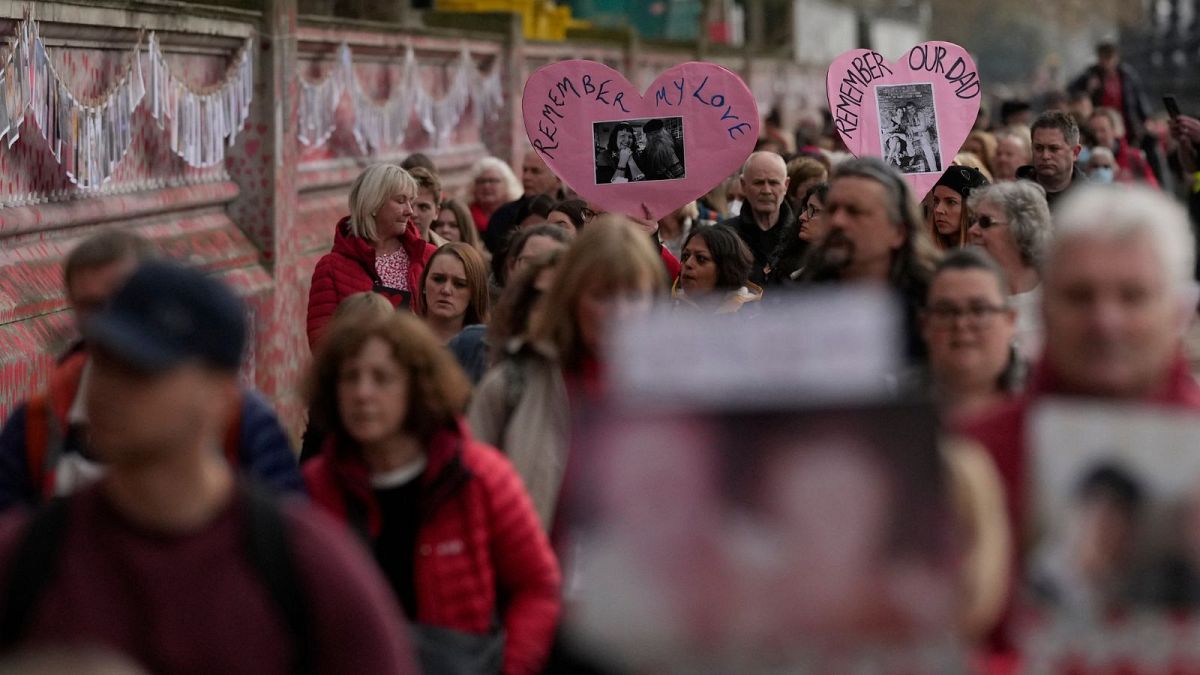A new Oxford University study found that the duration of an encounter with a person sick with COVID was as important as the distance kept from them.
How likely is it to get COVID-19 after being exposed to someone infected? It’s been a question on many people’s minds during the pandemic, and one that a group of researchers in the UK has finally found an answer to.
Researchers from the Nuffield Department for Medicine at the University of Oxford analysed data from 7 million people in England and Wales who, during the health emergency, were notified by the country’s NHS COVID-19 app that they had been in contact with someone who was infected.
The goal was to find out how many of those alerted actually contracted the SARS-CoV-2 virus.
The NHS COVID-19 app, which was closed down in April 2023, allowed people who had downloaded it to let others know that they had been infected.
At the same time, the app would send users an alert if they had come in the proximity of someone who was infected, (based on non-mandatory reporting to the app). People would then have to either self-isolate or get tested.
The job of Luca Ferretti, the lead researcher of the University of Oxford study that was published in the journal Nature this month, and his colleagues was to understand if the app had worked correctly.
Did it notify people when there was a reasonable risk? The short answer is yes. But the researchers found out much more than that.
“The app was sending back to our servers anonymous information about which people were getting notified of the risk, which people were getting tested, who was getting a positive result, and information about the specific contact: the duration, the proximity,” Ferretti tells Euronews Next.
“We looked at what the app computed as a risk to the individual, in terms of distance and duration, and the two things came up to be really closely correlated,” he says.
Duration vs distance
The researchers took advantage of this “treasure trove” of information to study the relation between distance and duration of an encounter with an infected person to see how this would influence the risk of someone being infected.
And it turns out that duration is as important as distance, if not more.
“Everybody was focussed on the distance. There was this 1-metre or 2-metre distance rule in shops, at stations. But distance should have never been the focus of it because as we know now, the truth is more nuanced than that,” Ferretti said.
“Once you’re a short distance from someone, it’s the duration that matters. If you’re exposed for 10 seconds, you must be very unlucky for the particles from the mouth of the infected person to get to your mouth or your nose. But if you stay there one hour, of course you will try your luck 60 times with respect to one minute”.
The researchers found that longer exposures at greater distances had a similar risk to shorter exposures at closer distances.
There’s no golden rule about how much time you can spend with an infected person before getting COVID-19 yourself, as this can change according to what the infected person is doing. For example, if they were coughing a lot, the other person would have more chances of getting infected.
But the longer someone spent with another person who was sick, the more likely they were to get sick themselves, even if they kept a 2-metre distance at all times.
“Actually, what we see is that a lot of people who were getting sick were people who we assumed were households because they were staying together more than 8 hours,” Ferretti said.
“And those were something like 6 per cent of the contacts and 40 per cent of transmissions”.
What can we learn from this?
For Ferretti, the lesson we can draw from this study is that duration is going to be important to fight the next pandemic or epidemic.
“Of course, distance is still important,” he says, “but once we have that established, we need to talk about duration”.
Ferretti says that the duration of contact with an infected person is “something that honestly has not been counted that much in the pandemic response, and should have been taken into account”.
In the age of Big Data, the researcher says, we should be able to use the newest technology to develop an epidemiological tool that would help us fight the spread of a new pathogen.
But the researcher is concerned that not enough is being done to channel the knowledge acquired during the pandemic towards fighting the next one.
“I’m not going to condemn any or anyone who wants to forget about COVID,” he said. “I’m more concerned with the fact that policymakers are deciding to forget it at the institutional level because that brings us to the point where all the knowledge and skills we have acquired are fading”.
